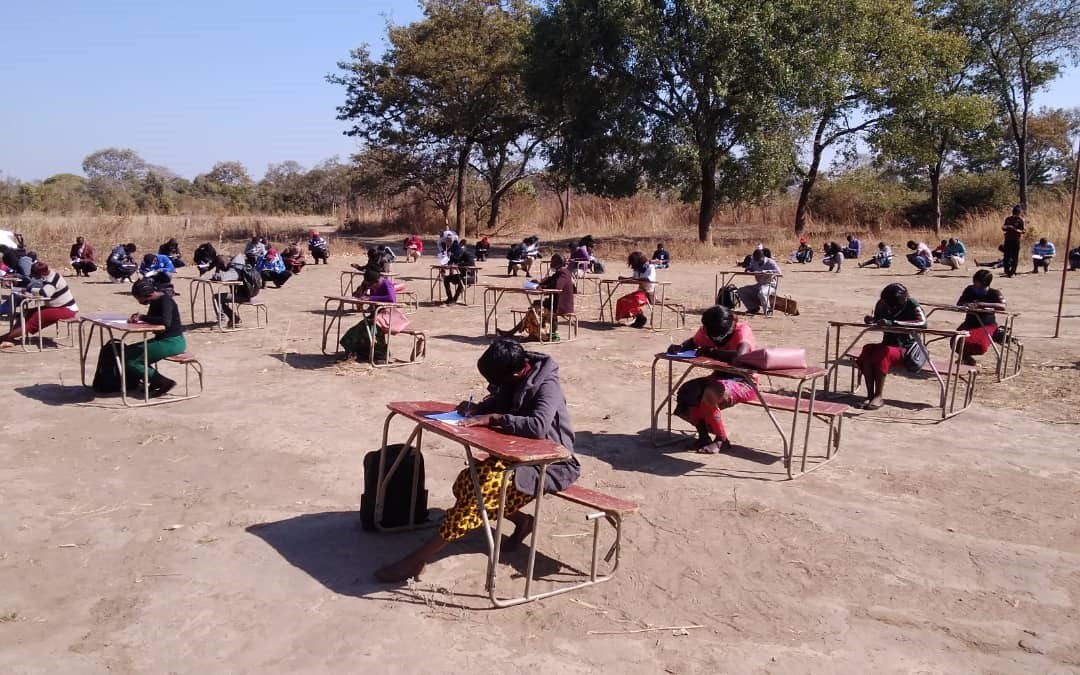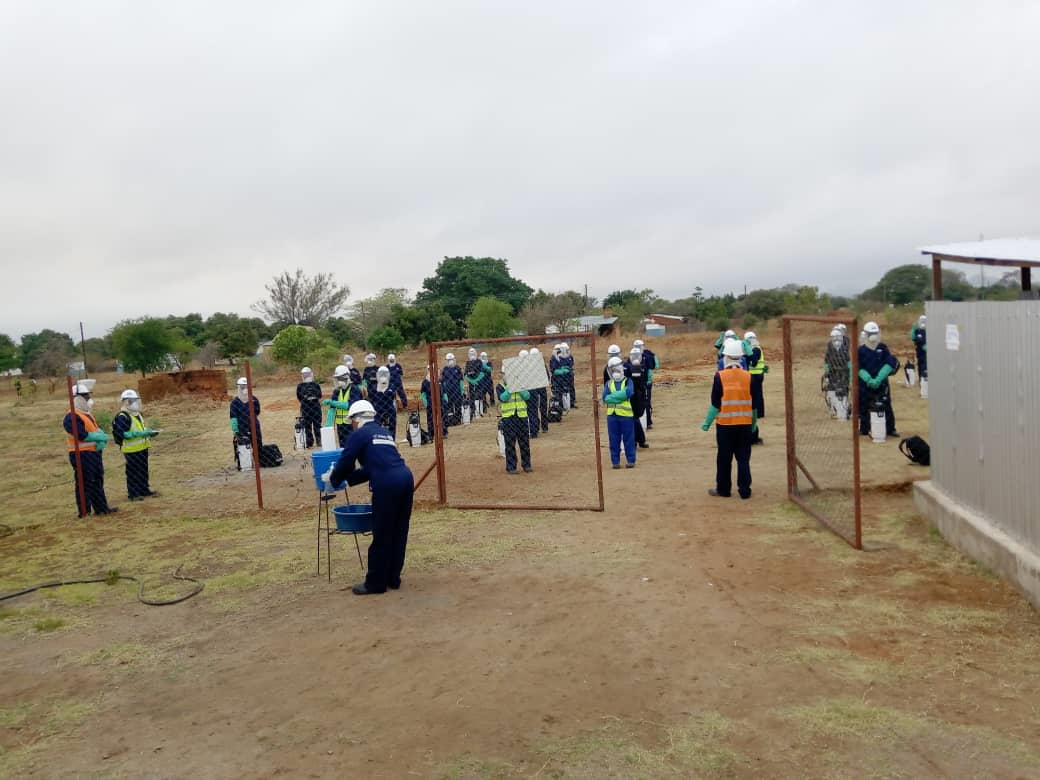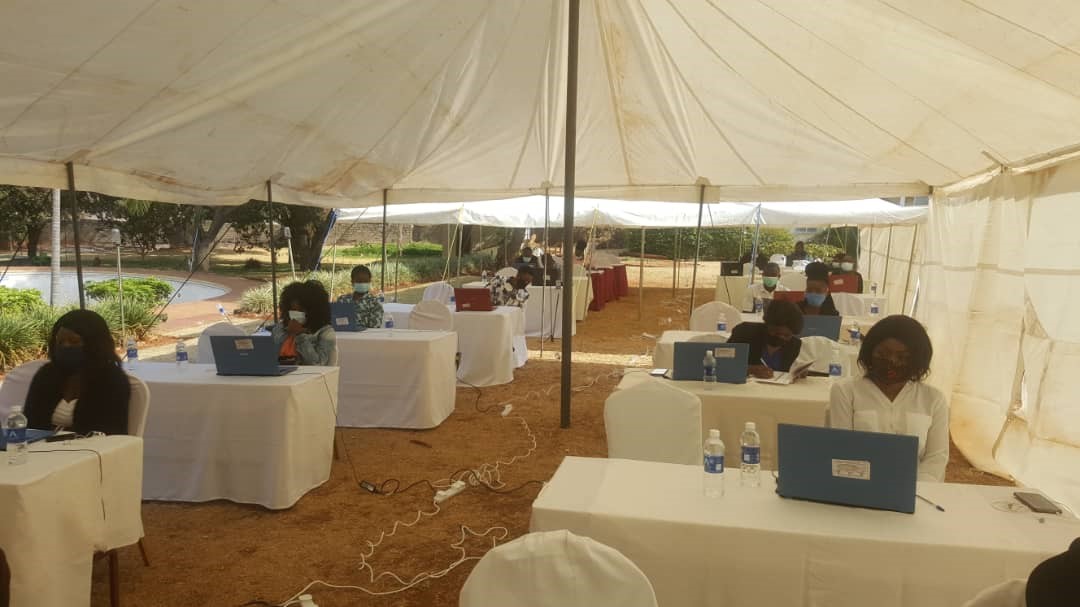PMI VectorLink Zambia Implements COVID-19 Mitigation Measures and Successful 2020 IRS Campaign
When cases of COVID-19 were first recorded in Zambia, the Ministry of Health quickly established strict guidance to prevent the spread of the virus. These measures were received with some apprehension about the prospect of continuing malaria prevention activities during COVID-19. The PMI VectorLink Project, funded by USAID and the US President’s Malaria Initiative (PMI), supports the implementation of both indoor residual spraying (IRS) and distribution of insecticide-treated nets (ITNs), along with entomological monitoring to guide vector control decision making. After extensive consultation and in alignment with national as well as PMI and global guidelines, VectorLink developed tailored adaptations to mitigate the risk of COVID-19 infection while protecting the communities from malaria in the three IRS target provinces, and four ITN target provinces where the project works. This guidance was shared with and validated by key stakeholders – the National Malaria Elimination Program (NMEP) and PMI – before implementation.
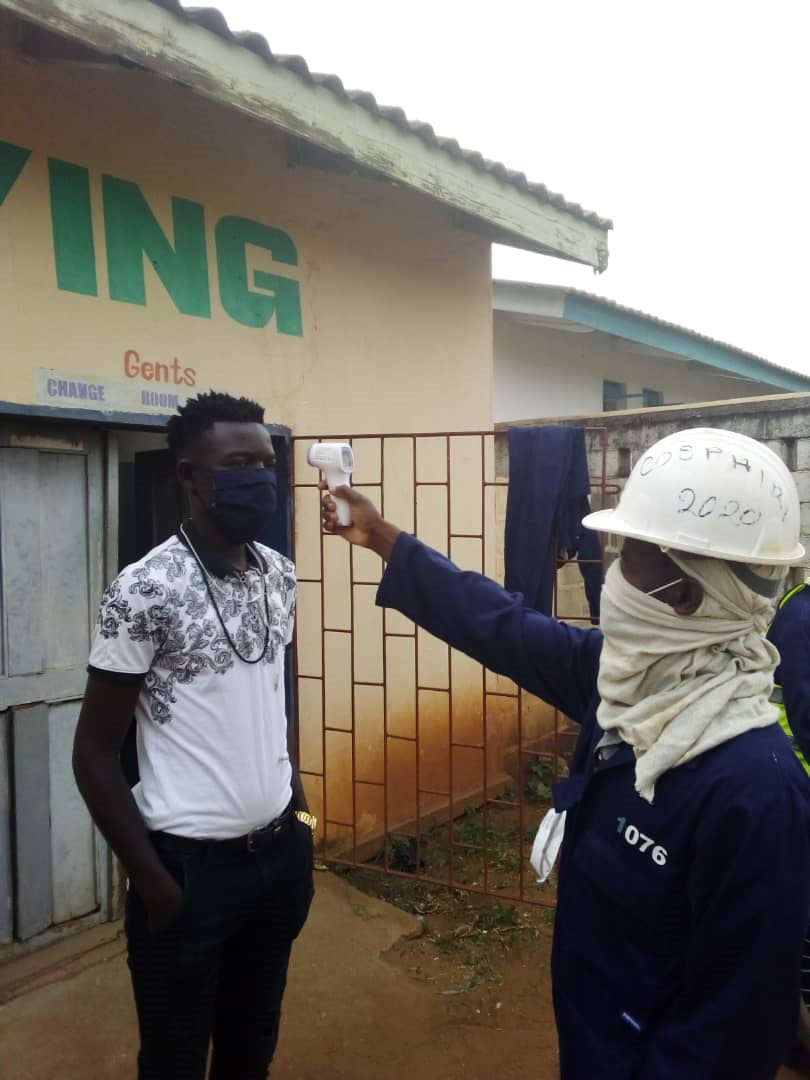
In accordance with the guidance, recruitment and training of hundreds of seasonal workers was conducted outdoors (in some cases under open tents) to allow for proper ventilation. Hand wash stations were set up at the entrance. All participants had their temperature checked upon arrival, were required to wear facemasks and maintain social distancing throughout the duration of the training. Advocacy meetings with district and traditional leaders adhered to the same measures.
During IRS implementation in 15 districts across three provinces, the same safety standards of daily temperature checks, provision of hand washing facilities, outdoor assemblies, adhering to full PPE use including N95 facemasks, were replicated. VectorLink also secured additional vehicles to ensure that spray teams maintained social distancing while being transported to and from the communities. COVID-19 posters were displayed at all 70 IRS operation bases. Spray teams were also provided with hand sanitizing wipes to wipe down their gloves after spraying each house. All mobilizers who worked with spray teams in the communities were provided with facemasks.
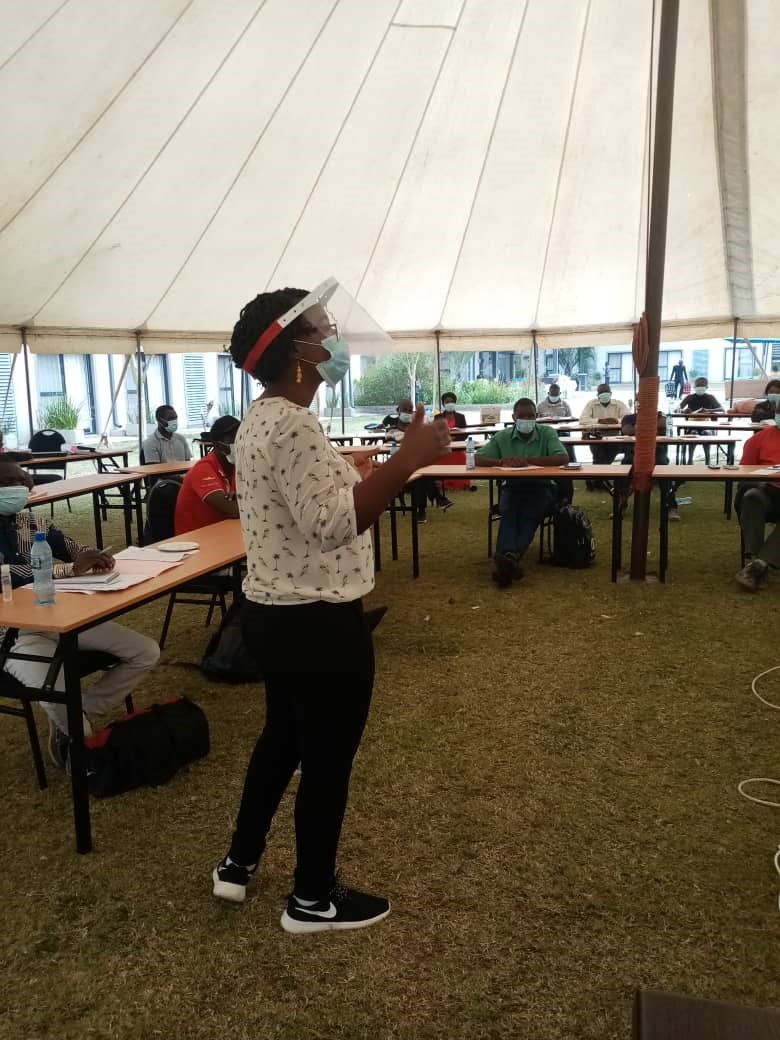
Other members of the project team also adhered to the same safety standards. Project data entry clerks waited a minimum of 24 hours to process data collection forms, entered spray data under open tents, and wiped down their dedicated laptops prior to and at the end of each work day. The project entomology team, whose role is to assess the quality of spray using mosquitoes and follow up on how long the spray insecticides lasts on the sprayed surfaces, observed the same standards.
These rigorous safety measures, which cut across every aspect of implementation, ensured that the 2020 IRS campaign, which utilized more than 2,500 seasonal staff over a 30-day period, sprayed more than 640,000 structures (96% spray coverage), and protected more than 2.7 million Zambians from malaria, did not record one incident of COVID-19. The Head of Vector Control at the NMEP, Dr. Emmanuel Kooma, summed it up thus…“it was a tense situation conducting IRS under the COVID environment. However, I thank VectorLink for strictly observing the COVID prevention guidelines such that we never recorded a single case of COVID. The job is done – a huge relief on my part.”
